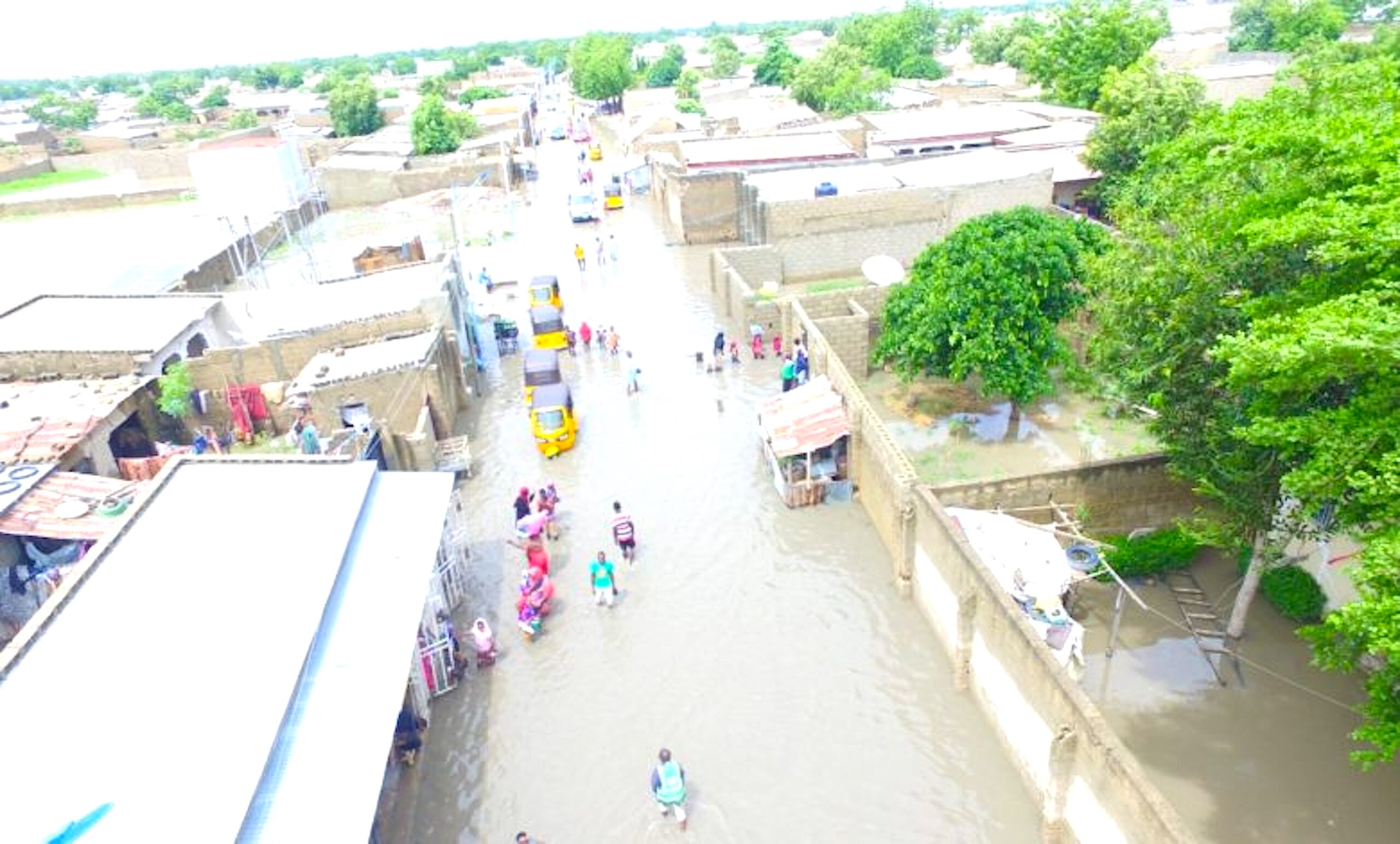Nigeria’s food crisis, exacerbated by the recent Maiduguri floods, underscores the critical intersection of climate change, infrastructure challenges, and socio-economic vulnerabilities. The deluge, triggered by the collapse of the Alau Dam, has left a devastating impact on the lives of Nigerians, particularly in Borno State, and serves as a warning of the larger issues threatening the nation’s food security.
A Disaster of Magnitude: Flooding Meets Fragile Food Systems
The floods displaced over 400,000 Nigerians, washing away fertile farmlands and destroying crops that form the backbone of local agriculture. This devastation came at the peak of the farming season, leading to significant food shortages in a region already grappling with chronic hunger and malnutrition.
• Agriculture’s Central Role: Over 70% of Nigerians depend on agriculture for their livelihoods, making the flooding not just an environmental catastrophe but an economic and social disaster.
• Immediate Impacts: Entire villages lost staple crops like maize, rice, and millet, pushing food prices to unsustainable levels for low-income households.
Economic Consequences: Rising Costs, Falling Incomes
The aftermath of the Maiduguri floods has amplified economic challenges for Nigerians nationwide:
1. Soaring Food Prices:
• Flood-related losses have intensified market shortages, with staple food prices surging by as much as 40% in some areas.
• Families already living below the poverty line are forced to cut meal portions or skip meals entirely.
2. Livelihood Destruction:
• Farmers who lost their harvest face months, if not years, of rebuilding.
• Reduced agricultural output threatens not only regional food supply but also Nigeria’s GDP, of which agriculture contributes 23% annually.
The Human Cost: Hunger and Displacement
The floods have worsened Nigeria’s already dire food and nutrition crisis, where:
• 25 million Nigerians were projected to face food insecurity in 2024.
• Malnutrition, especially among children under five, has seen a sharp rise, with emergency feeding centers reporting a 30% increase in admissions since the disaster.
Internally displaced persons (IDPs), now crowded into shelters, depend heavily on humanitarian aid. However, limited funding and the global competition for resources leave many without adequate support.
Long-Term Implications: Nigeria’s Fragile Future
The Maiduguri floods highlight systemic challenges that must be addressed to mitigate future disasters:
1. Infrastructure Deficiencies:
• The Alau Dam collapse exposes critical weaknesses in Nigeria’s water management systems.
• Improved dam maintenance and flood-control infrastructure are urgently needed to prevent repeat occurrences.
2. Climate Adaptation:
• Nigeria is increasingly vulnerable to extreme weather events. Comprehensive climate adaptation strategies, including early warning systems and resilient farming practices, are non-negotiable.
3. Policy Priorities:
• Policymakers must prioritize agricultural investment and disaster resilience. Enhanced irrigation systems, subsidies for farmers, and better food storage solutions are key to reducing post-flood losses.
How This Affects Everyday Nigerians
For everyday Nigerians, the ripple effects of the Maiduguri floods are felt in three critical ways:
• Food Availability: Scarcity of essential staples leads to reliance on imports, driving inflation.
• Increased Poverty: Families spend a greater percentage of their income on food, reducing access to healthcare, education, and other basic needs.
• Health Crises: Malnutrition and waterborne diseases, such as cholera, are rising due to contaminated floodwaters and food shortages.
A Call to Action: Building a Resilient Nigeria
The Maiduguri floods serve as a stark reminder of Nigeria’s vulnerabilities. To ensure food security and safeguard livelihoods:
• Investment in Climate Resilience: From building better flood defenses to supporting climate-smart agriculture, Nigeria must act decisively to mitigate the effects of extreme weather events.
• Collaboration for Change: Public-private partnerships can accelerate the adoption of sustainable practices in agriculture and infrastructure.
• Empowering Communities: Direct aid and skill-building initiatives can help farmers recover more quickly and rebuild stronger.
Conclusion: Turning Crisis into Opportunity
While the floods in Maiduguri have deepened Nigeria’s food insecurity, they also present an opportunity to address systemic vulnerabilities. By investing in climate resilience, infrastructure development, and food security initiatives, Nigeria can turn this crisis into a turning point for its agricultural future.
Let this moment inspire action—because the cost of inaction is too high.
